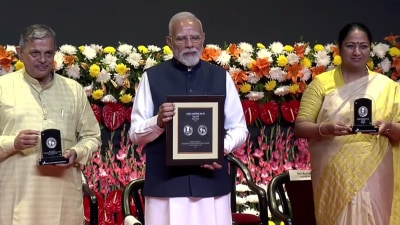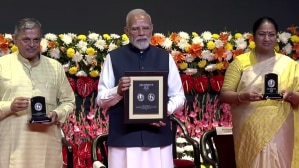Govt reshapes Act for a "powerful" BMC
MUMBAI, November 24: The Sena-BJP government today proposed sweeping amendments in the BMC Act to give more bite to administration and also...

MUMBAI, November 24: The Sena-BJP government today proposed sweeping amendments in the BMC Act to give more bite to administration and also to increase finances. Among the major changes suggested are hefty hikes in fines and a lot more power to the Municipal Commissioner.
One of the largest beneficiaries of these wide-ranging changes would be the floundering Clean Mumbai campaign with an increase in fines. The present fines against litterbugs ranging from 100 to Rs 1000 will be hiked to Rs 1000 and Rs 5000.
Licenses of private traders and slaughter house owners littering their surroundings will be suspended for 60 days. The corporation has also been empowered to collect, transport and destroy solid waste collected from different parts of the metropolis.
“The cabinet today recommended that the Governor P C Alexander issue an ordinance to effect the proposed amendments,” Chief Minister Manohar Joshi told media persons after the weekly cabinet meeting.
The government has also decided to get tough about unauthorised structures. A seven-day notice period has been prescribed for demolishing illegal structures. Builders and developers who claim to have the authorisation will have to produce a no-objection certificate within 24 hours, failing which the commissioner can not only demolish such structures without notice but also seize construction material on the site.
Persons indulging in unauthorised constructions will serve jail terms ranging from three months to three years and cough up fines between Rs 10,000 to Rs 50,000.
There has also been a ten-fold hike in fines on hawkers. Unauthorised hawkers will be fined up to Rs 10,000. At the moment, the fine is up to Rs 1000. The commissioner will also be empowered to seize goods of such hawkers.
Among the changes proposed in the taxation system, the state government has taken over the powers to change octroi payment schedules. At present, 93.75 per cent of the octroi on goods which are temporarily stored in the city is returned to the owner. But now, the government proposes to deduct 3.75 per cent from the owner’s share for its coffers.
Drastic changes have also been proposed in property tax laws. Previously, joint ownership of property had posed problems for the recovery of tax from individual owners. Now, it has been proposed to auction the share of the erring partners in the property.
An owner will first have to deposit the disputed property tax amount in court only after which his plea will be heard.
The commissioner’s financial powers have also received a major boost in the new proposal. Earlier while the commissioner had to obtain the permission of the improvements committee for purchases of over Rs 5,000 and the corporation’s permission for purchases of Rs 10,000, it has been proposed to increase these limits to Rs five lakh and Rs 10 lakh respectively.
Similarly, the commissioner will be empowered to dispose goods worth Rs five lakh instead of existing Rs one lakh. He will also be authorised to divert the funds from one head to other up to Rs three lakh. At the moment, the ceiling on funds he can divert is Rs 5,000. The Municipal Commissioner and the BMC standing committee’s powers to invite tenders and dispose of goods have been put on par with the Bombay Electric Supply and Transport Undertaking (BEST) general managers and BEST Committee.
Mayor-in-Council still on: CM
The chief minister also announced that the Mayor-in-Council proposal was still alive. “Giving more powers to the commissioner does not mean that we have shelved the Mayor-In-Council proposal. It will be taken up at appropriate time,” Joshi stated. The standing committee will now have to consult the Mayor and Commissioner before making any recruitments in the office of the Chief Accounts Officer.
When his government decides to introduce the Mayor-In-Council system, the commissioner’s title will be replaced by that of Mayor, Joshi said. “In fact the Mayor-In-Council proposal was there before the cabinet today itself, but it was postponed.”



- 01
- 02
- 03
- 04
- 05




























